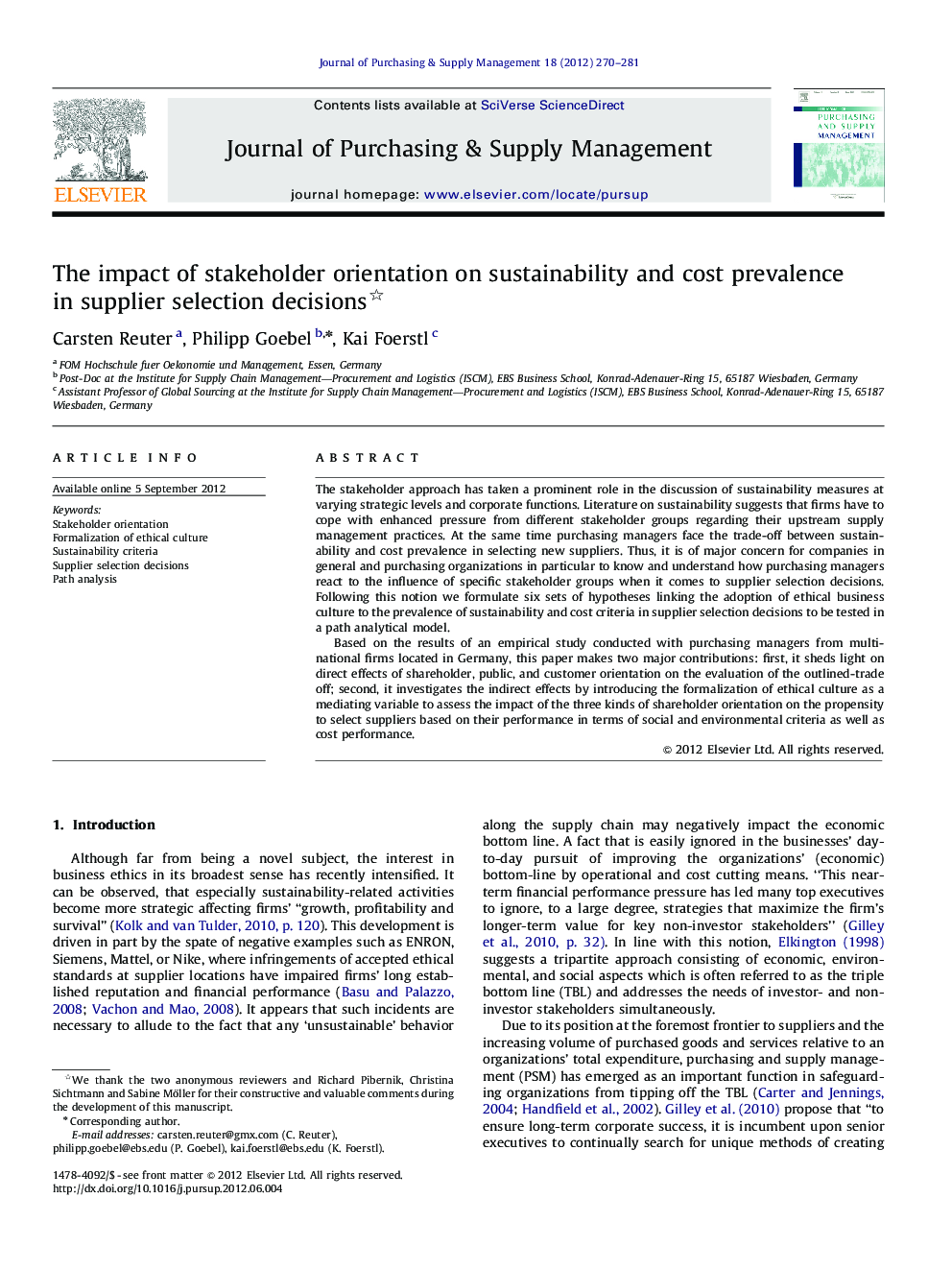| Article ID | Journal | Published Year | Pages | File Type |
|---|---|---|---|---|
| 1020860 | Journal of Purchasing and Supply Management | 2012 | 12 Pages |
The stakeholder approach has taken a prominent role in the discussion of sustainability measures at varying strategic levels and corporate functions. Literature on sustainability suggests that firms have to cope with enhanced pressure from different stakeholder groups regarding their upstream supply management practices. At the same time purchasing managers face the trade-off between sustainability and cost prevalence in selecting new suppliers. Thus, it is of major concern for companies in general and purchasing organizations in particular to know and understand how purchasing managers react to the influence of specific stakeholder groups when it comes to supplier selection decisions. Following this notion we formulate six sets of hypotheses linking the adoption of ethical business culture to the prevalence of sustainability and cost criteria in supplier selection decisions to be tested in a path analytical model.Based on the results of an empirical study conducted with purchasing managers from multi-national firms located in Germany, this paper makes two major contributions: first, it sheds light on direct effects of shareholder, public, and customer orientation on the evaluation of the outlined-trade off; second, it investigates the indirect effects by introducing the formalization of ethical culture as a mediating variable to assess the impact of the three kinds of shareholder orientation on the propensity to select suppliers based on their performance in terms of social and environmental criteria as well as cost performance.
► There exists a trade-off between cost and sustainability prevalence in supplier selection. ► Shareholder orientation negatively affects sustainability prevalence in supplier selection. ► Industrial customers as a stakeholder group do not create a strong awareness for social and environmental concerns in supplier selection decisions. ► Public orientation positively affects sustainability prevalence in supplier selection. ► A formalized ethical culture is a mean to foster the desired behavior of PSM employees in supplier selection decisions.
